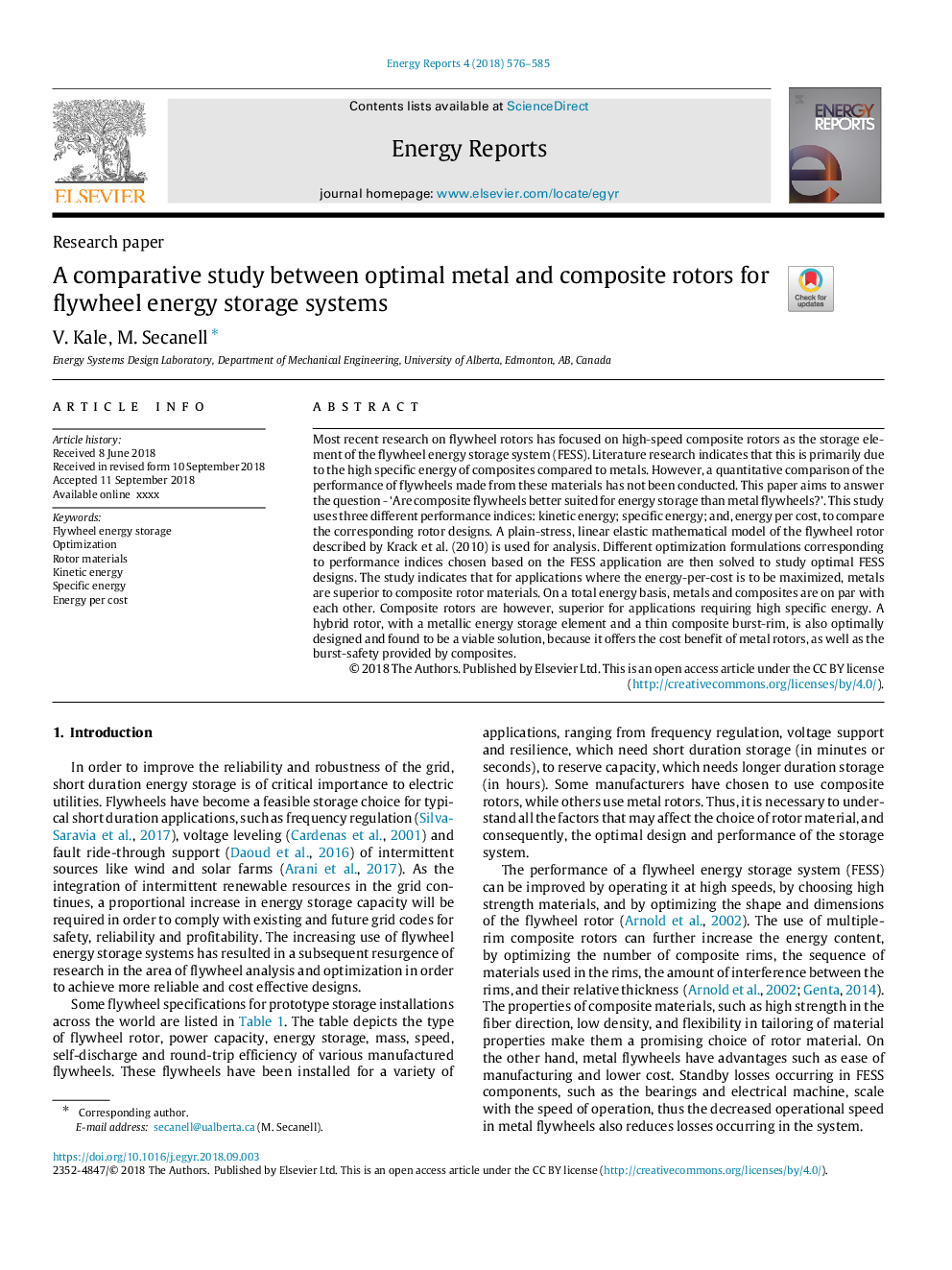| کد مقاله | کد نشریه | سال انتشار | مقاله انگلیسی | نسخه تمام متن |
|---|---|---|---|---|
| 11007402 | 1521524 | 2018 | 10 صفحه PDF | دانلود رایگان |
عنوان انگلیسی مقاله ISI
A comparative study between optimal metal and composite rotors for flywheel energy storage systems
ترجمه فارسی عنوان
یک مطالعه مقایسه ای بین موتورهای بهینه فلز و کامپوزیت برای سیستم های ذخیره انرژی الکتریکی
دانلود مقاله + سفارش ترجمه
دانلود مقاله ISI انگلیسی
رایگان برای ایرانیان
کلمات کلیدی
ذخیره انرژی فلاویل، بهینه سازی، مواد روتور، انرژی جنبشی، انرژی خاص انرژی در هزینه،
موضوعات مرتبط
مهندسی و علوم پایه
مهندسی انرژی
مهندسی انرژی و فناوری های برق
چکیده انگلیسی
Most recent research on flywheel rotors has focused on high-speed composite rotors as the storage element of the flywheel energy storage system (FESS). Literature research indicates that this is primarily due to the high specific energy of composites compared to metals. However, a quantitative comparison of the performance of flywheels made from these materials has not been conducted. This paper aims to answer the question - 'Are composite flywheels better suited for energy storage than metal flywheels?'. This study uses three different performance indices: kinetic energy; specific energy; and, energy per cost, to compare the corresponding rotor designs. A plain-stress, linear elastic mathematical model of the flywheel rotor described by Krack et al. (2010) is used for analysis. Different optimization formulations corresponding to performance indices chosen based on the FESS application are then solved to study optimal FESS designs. The study indicates that for applications where the energy-per-cost is to be maximized, metals are superior to composite rotor materials. On a total energy basis, metals and composites are on par with each other. Composite rotors are however, superior for applications requiring high specific energy. A hybrid rotor, with a metallic energy storage element and a thin composite burst-rim, is also optimally designed and found to be a viable solution, because it offers the cost benefit of metal rotors, as well as the burst-safety provided by composites.
ناشر
Database: Elsevier - ScienceDirect (ساینس دایرکت)
Journal: Energy Reports - Volume 4, November 2018, Pages 576-585
Journal: Energy Reports - Volume 4, November 2018, Pages 576-585
نویسندگان
V. Kale, M. Secanell,
